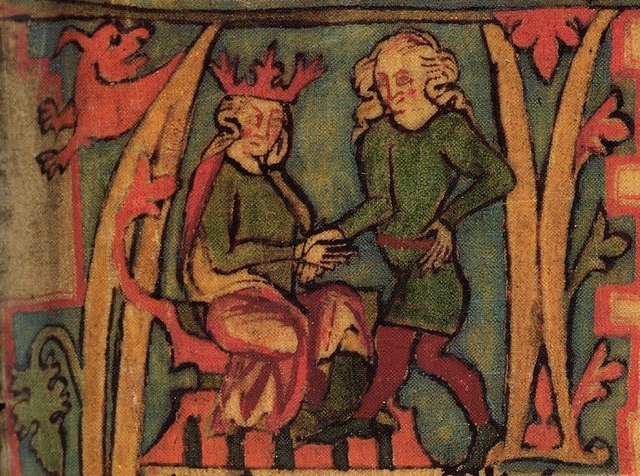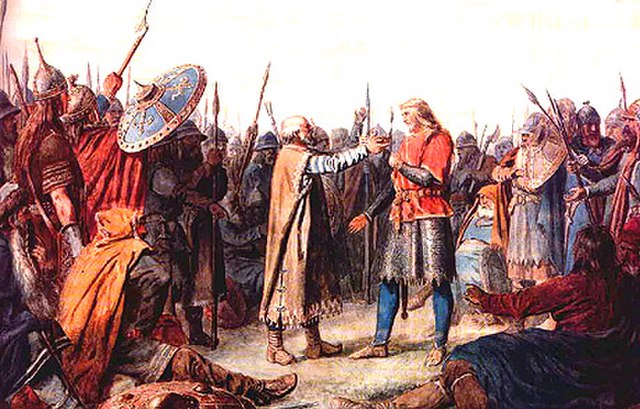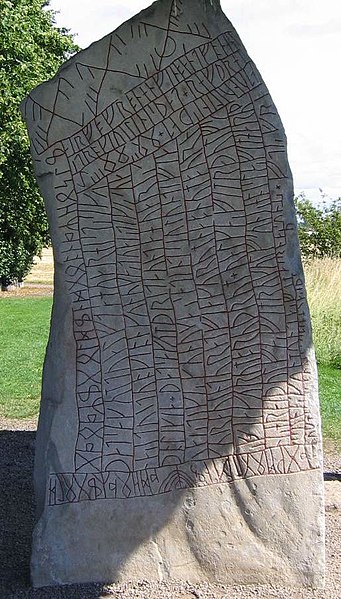Orkney, also known as the Orkney Islands, is an archipelago in the Northern Isles of Scotland, situated off the north coast of the island of Great Britain. Orkney is 10 miles (16 km) north of the coast of Caithness and has about 70 islands, of which 20 are inhabited. The largest island, the Mainland, has an area of 523 square kilometres (202 sq mi), making it the sixth-largest Scottish island and the tenth-largest island in the British Isles. Orkney's largest settlement, and also its administrative centre, is Kirkwall.
Ring of Brodgar, on the island of Mainland, Orkney
Midhowe Broch on the west coast of Rousay
According to the Orkneyinga Saga, Harald Fairhair (on the right, with fair hair) took control of Orkney in 875. He is shown here inheriting his kingdom from his father Halfdan the Black, in an illustration from the Flateyjarbók.
Artist's conception of King Olaf Tryggvason of Norway, who forcibly Christianised Orkney. Painting by Peter Nicolai Arbo.
Old Norse, Old Nordic, or Old Scandinavian is a stage of development of North Germanic dialects before their final divergence into separate Nordic languages. Old Norse was spoken by inhabitants of Scandinavia and their overseas settlements and chronologically coincides with the Viking Age, the Christianization of Scandinavia and the consolidation of Scandinavian kingdoms from about the 8th to the 15th centuries.
The Rök runestone in Östergötland, Sweden, is the longest surviving source of early Old East Norse. It is inscribed on both sides.





